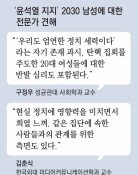KCTU's general strike to increase ‘wrinkles in the economy’
KCTU's general strike to increase ‘wrinkles in the economy’
Posted July. 04, 2023 07:56,
Updated July. 04, 2023 07:56
The Korean Confederation of Trade Unions (KCTU) launched a general strike Monday. In the summer strike that will continue for two weeks, the KCTU is presenting the end of union suppression, the passage of the Yellow Envelope Act, and the minimum wage increase as key agenda items. However, the nature of the strike is strong in that it is putting forward demands outside of labor relations, such as the cessation of ocean dumping of radioactive water from Fukushima in Japan and the resignation of the Yoon Suk Yeol administration.
Due to the general strike, some contract laborers in special types of employment, such as courier drivers and home appliance repair technicians, have stopped working since Monday. On Thursday, the department store, duty-free shop, and hypermarket unions. Next Wednesday, the metal union including the Hyundai Motor union, and next Thursday, the health care union consisting of nurses and nursing assistants are scheduled to strike. The KCTU argues that public inconvenience will not be great as industry unions strike for a day or two in rotation. However, delivery delays due to the 3-day strike by the courier union and health and medical union strikes scheduled for an indefinite period from next Thursday are highly likely to cause substantial inconvenience to the lives of the public.
Of particular concern is its negative impact on the economy, where there are signs of a gradual recovery. The yellow envelope law demanded by the KCTU is difficult for businesses to accept because it is highly likely to exacerbate the conflict between labor and management in Korea by making it difficult to claim damages even if union strikes are the cause of losses. If the minimum wage is raised next year to 12,000 won per hour as demanded by the labor union, 5.6 million sole proprietors will be dealt a fatal blow, and hundreds of thousands of low-income jobs will be lost. There are also concerns about the negative ripple effect that Hyundai Motor, which has been supporting the reduced exports, will have on labor relations in the industry due to joining the KCTU strike for the first time in five years.
It is questionable whether this strike meets the legitimate purpose of a strike, which is to improve the economic status of workers, including working conditions. The demand to stop the oppression of labor unions is a response to government crackdowns on violent acts occurring at construction sites. However, it is far from protecting the rights and interests of workers to protest unconditionally over the government's address of rampant illegal activities. Since the issue of contaminated water from nuclear power plants in Japan is a political and diplomatic issue, it is not appropriate for the union to make it a strike agenda.
In 2023, the Korean economy is unlikely to achieve growth in the mid-1% range due to the uncertainties of the government's forecast of a downtrend in the first half and an uptrend in the second half. Due to the shock of high prices and high-interest rates, not only workers but also mom-and-pop store owners and businesses are facing a crisis and can’t wait for the economy to turn around. A general strike at the KCTU will add to these difficulties. Strikes that do not help improve the real life of the people must be stopped immediately.






